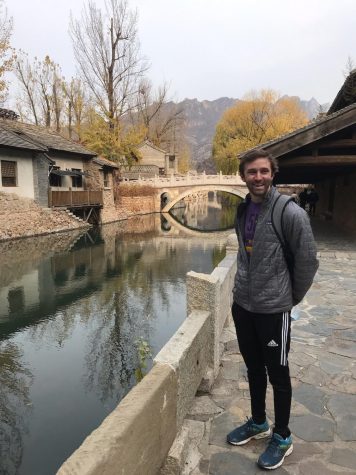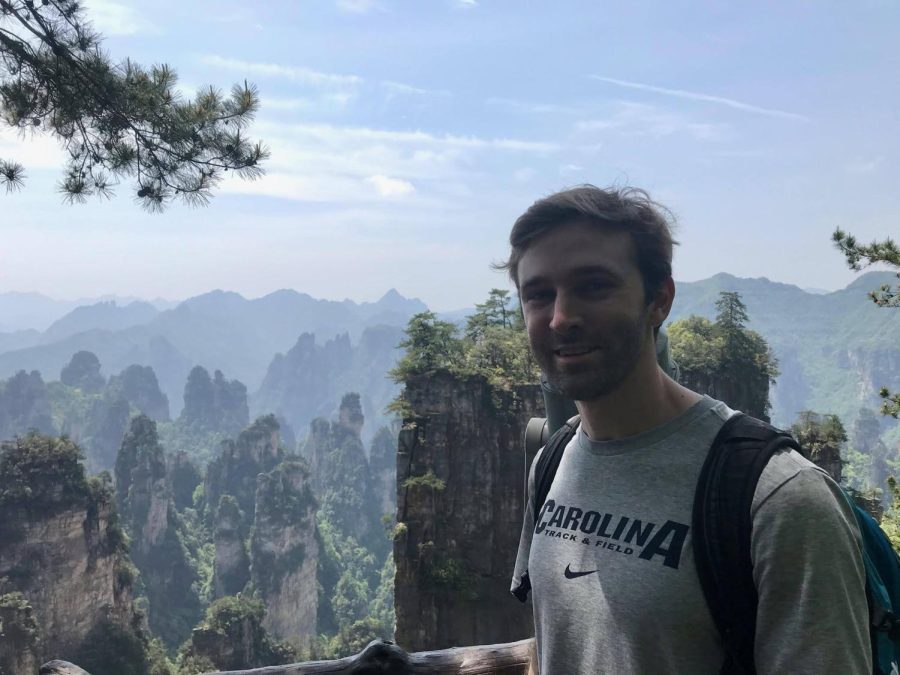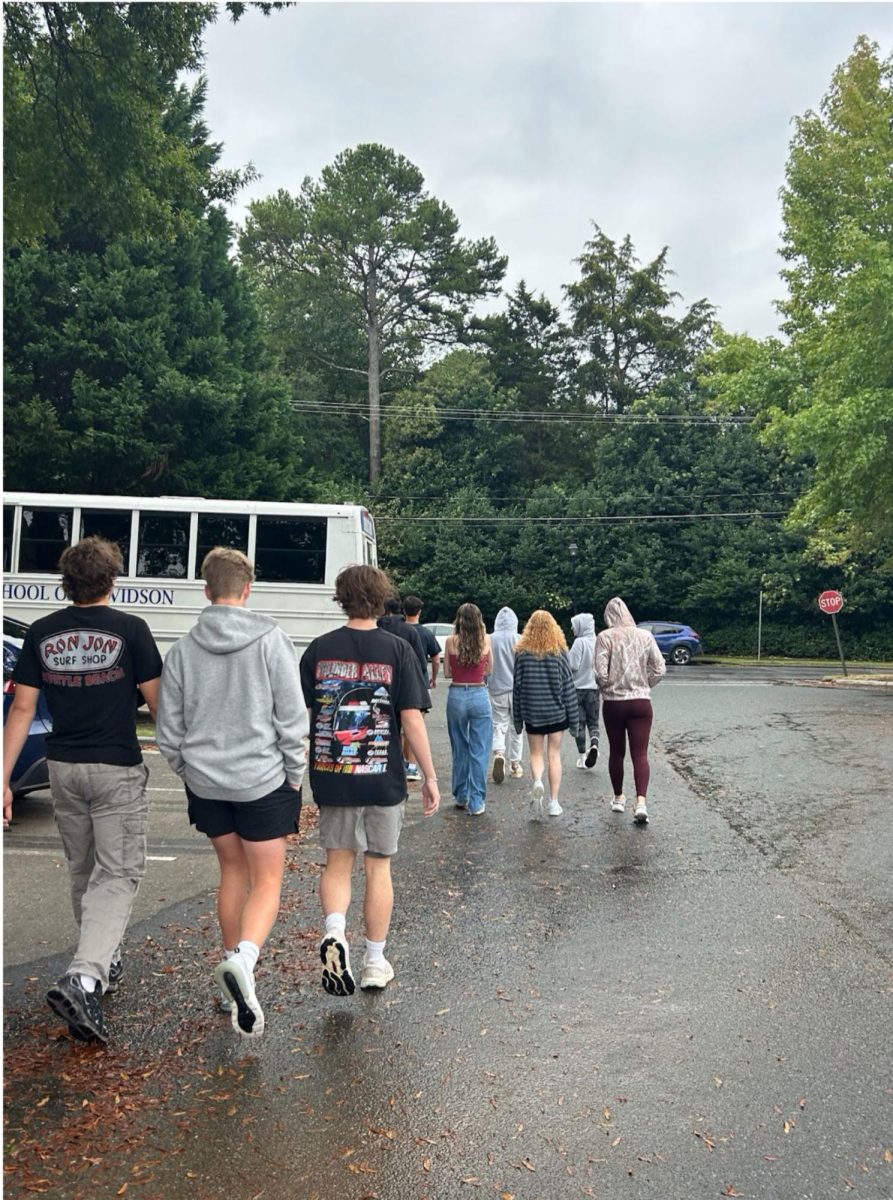Spartan Spotlight: Mr. Fisher
March 9, 2022
Nate Fisher is a teacher at the Community School of Davidson in Davidson, North Carolina. He currently teaches Civics and Economics. Fisher grew up in North Carolina and has lived here pretty much his whole life. He received his college education at UNC-Chapel Hill where he also ran track. Fisher enjoys teaching and even went to teach abroad in China. He and his wife both taught in China for a year but moved back to North Carolina in the summer of 2021 to teach at CSD.
Q: How did you end up becoming a teacher in China?
A: My wife and I had some friends who had taught abroad at several international schools. They had always talked about how amazing it was. And whenever we [were] complaining about certain things, like in the American school systems, they were like, “Yeah, it was never like this in Russia or in Korea or in France or in China, or whatever”… We decided we wanted to go abroad, [so] we interviewed [at] a number of places. We had job offers for a handful of schools in China, a handful of schools in the Middle East, Kuwait, and one in the United Arab Emirates. One [school] that was in Beijing. China seemed like the best place for us. All the classes were going to be taught in English, so that’s why we wound up in Beijing.
Q: When did you move to China?
A: It was the middle of the pandemic. We accepted the job in December of 2019. And then, the pandemic broke out. When we got there, [the Covid outbreak] was a lot better. [China] had handled the situation poorly, early on and trying to cover it up. But once it became public, Beijing never had a major outbreak. So we wound up actually having a more normal life there t han [what] was going on in the United States.
han [what] was going on in the United States.
Q: Did you do online school or in-person in China?
A: Basically just in person. Before we moved, it was really hard to get our, visas. And so I told you, we accepted that job in December 2019 and started going through the process, but then when we were supposed to leave by August of 2020, we still hadn’t gotten our paperwork done, because there were so many slowdowns. So for the whole first month of the school year, we were teaching the kids, who were in the school. But we couldn’t get there yet. So we were videoing in and they would put our face up on the screen. So yeah, I was online, for like a month. But the students were not online. And that was rough because of the time zones. So my last class finished up at 2:30 am. I’d work from like 8 pm to around 2:30 am.
Q: When did you come back to the United States, and what was the transition like?
A: I came back in July 2021. We were planning on staying a lot longer. We were planning on staying [in China] for several years, but because of the pandemic and some stuff going on with my family, I needed to be back in the United States. And I knew that we were dealing with issues before we moved, but I kind of just thought, “Oh well, if we need to come back, we can come back.” But it turns out if you came back, you just can’t return. So I could have left China, but I couldn’t have gotten back into China. It would have been a nightmare, so we decided to come back and stay here. The transition was pretty good. Since we’d only been there for not even a full year. I didn’t feel the reverse culture shock that people might talk about, it didn’t really hit me the same way because things hadn’t, changed a whole lot. The biggest thing was just coming back into the pandemic. In China it was still like a very real thing, we wore masks. That was about it, though. We would wear masks, and other than that your life was basically the same in China. COVID wasn’t really much of an issue there. So I’d say COVID was probably the biggest transition. And just money, everything’s so cheap in Beijing. It was very nice to have that kind of spending power. You could just wander into a noodle stall on the side of the road and spend 10 Kuài, (which is about a buck twenty in U.S. dollars) and have a nice meal. It was a pretty natural and easy transition.



